Abstract
In a culture medium of pH 7.4 and a folic acid concentration of 100 μg/liter that contains 5% heat-inactivated chicken plasma rather than serum, the rate of proliferation of normal chicken fibroblasts is determined by the concentration of calcium. Proliferation, rapid when the calcium concentration is physiological, decreases when the calcium concentration is reduced. At a very low calcium concentration, in this culture medium, normal fibroblasts are maintained without proliferation, whereas those infected with Rous sarcoma virus proliferate rapidly. This proliferative inactivity of normal fibroblasts does not involve contact-inhibition, since the effect is observed at low, as well as higher, culture densities. When a physiological amount of calcium is added to cultures of normal fibroblasts that have been maintained in very low calcium-plasma medium for 3 days, labeled thymidine uptake and protein synthesis are strongly stimulated, and cell division follows. The use of heat-inactivated chicken serum, instead of plasma, in this medium appears to strongly sensitize normal fibroblasts to the mitogenic action of calcium.
In a plasma-containing culture medium of physiological calcium concentration and a folate concentration of 5 μg/liter, neither normal nor Rous sarcoma virus-infected fibroblasts proliferate to an appreciable extent. The use of serum, however, instead of plasma results in rapid proliferation of both normal and infected cells, as does increase in the folate concentration of the plasma-containing medium to 100 μg/liter.
The fact that while normal fibroblasts are maintained without proliferation in low calcium-plasma medium, Rous sarcoma virus-infected fibroblasts proliferate rapidly, indicates that the effect of calcium is regulatory rather than permissive. These results suggest that the proliferation of normal fibroblasts is initiated by a cellular function involving calcium, and that the autonomous proliferation of the neoplastic fibroblasts results either from increased calcium uptake or from an alteration or a hypass of that function. The results also suggest that serum contains a mitogenic factor(s) not present in plasma, possibly a “wound hormone” for fibroblasts.
Keywords: heat-inactivated plasma, autonomy, wound hormone
Full text
PDF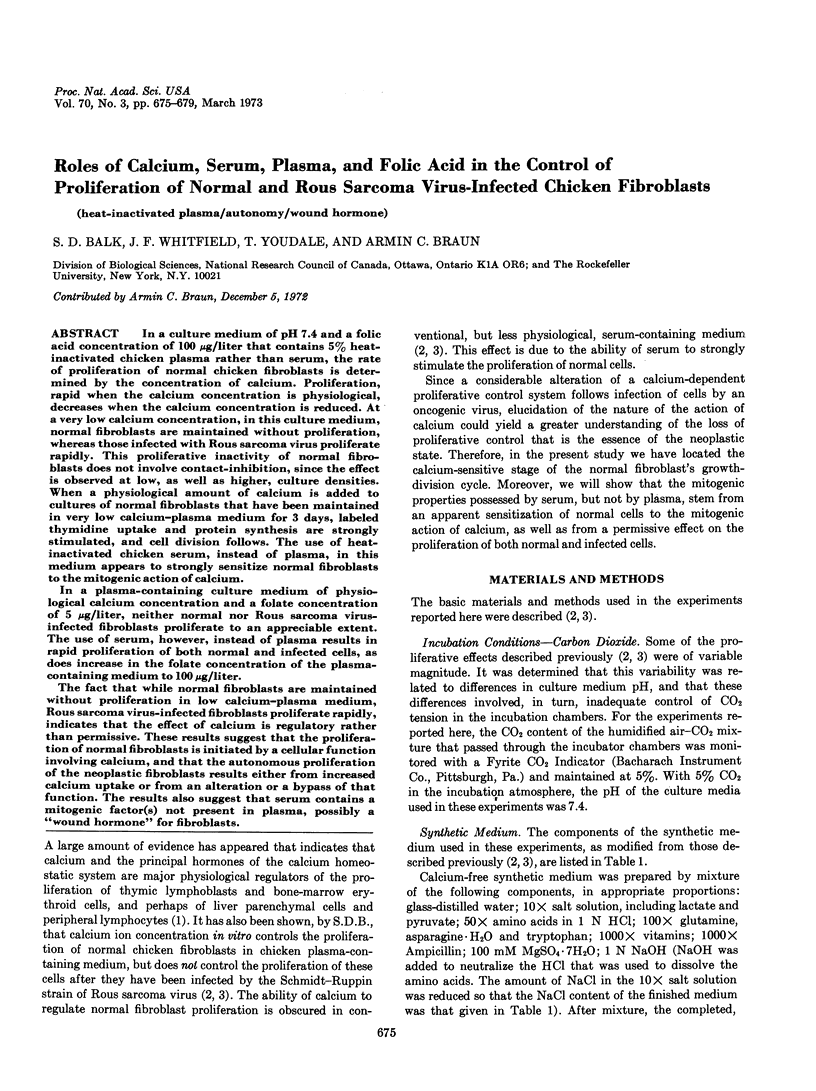
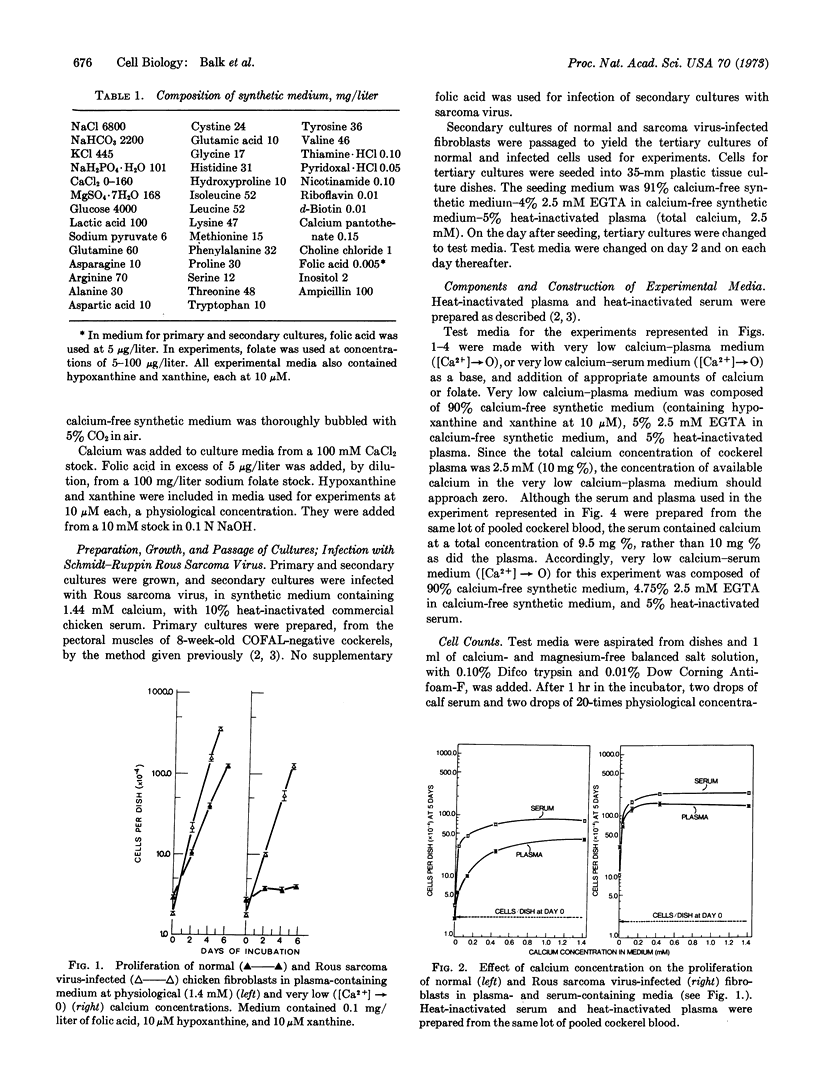
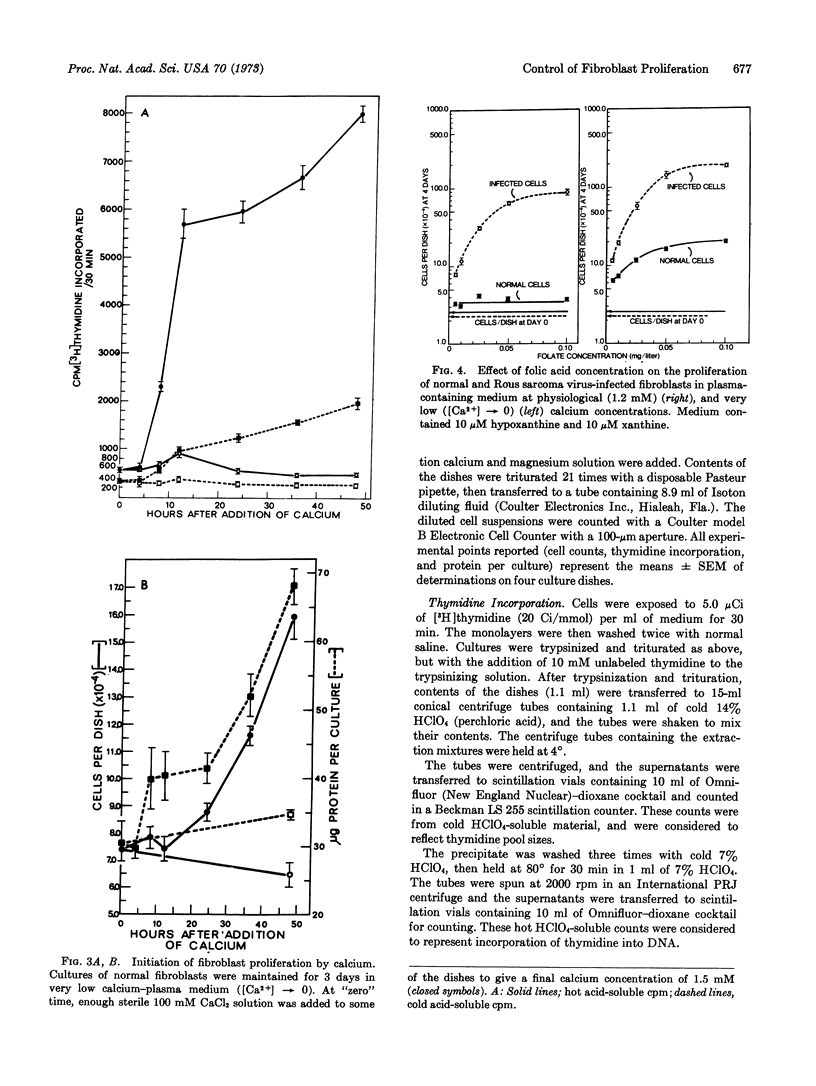
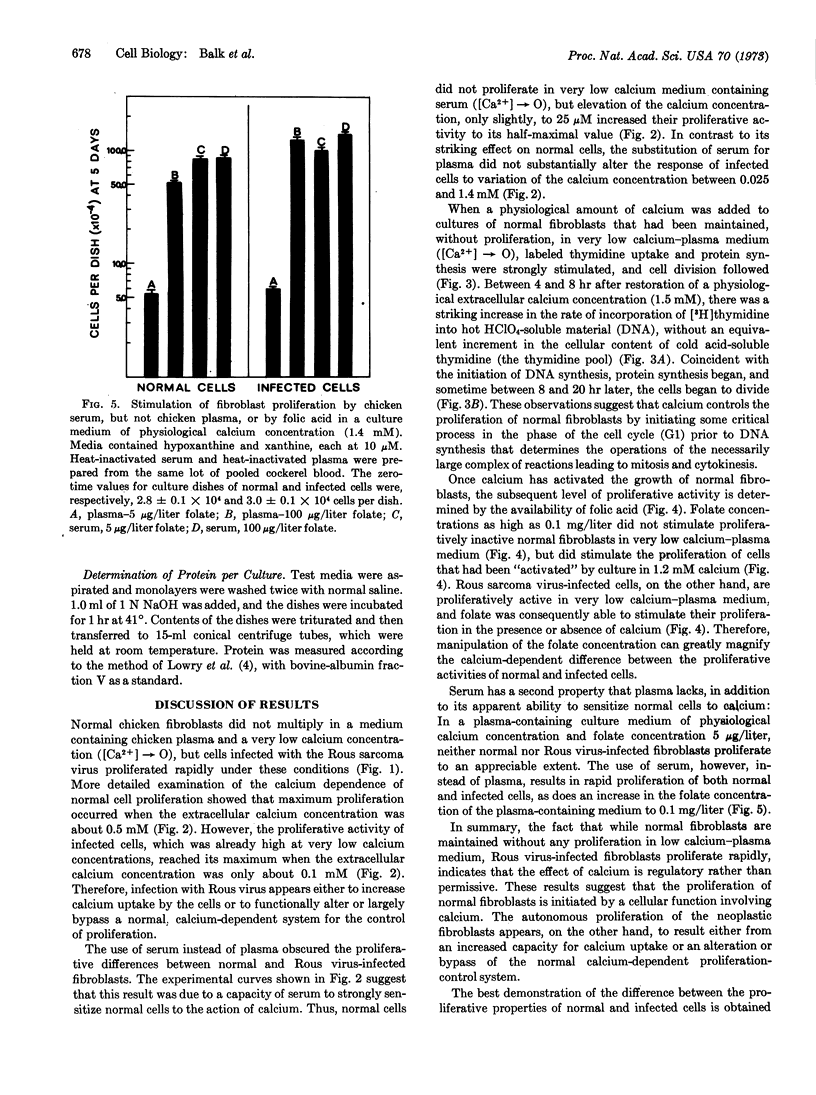
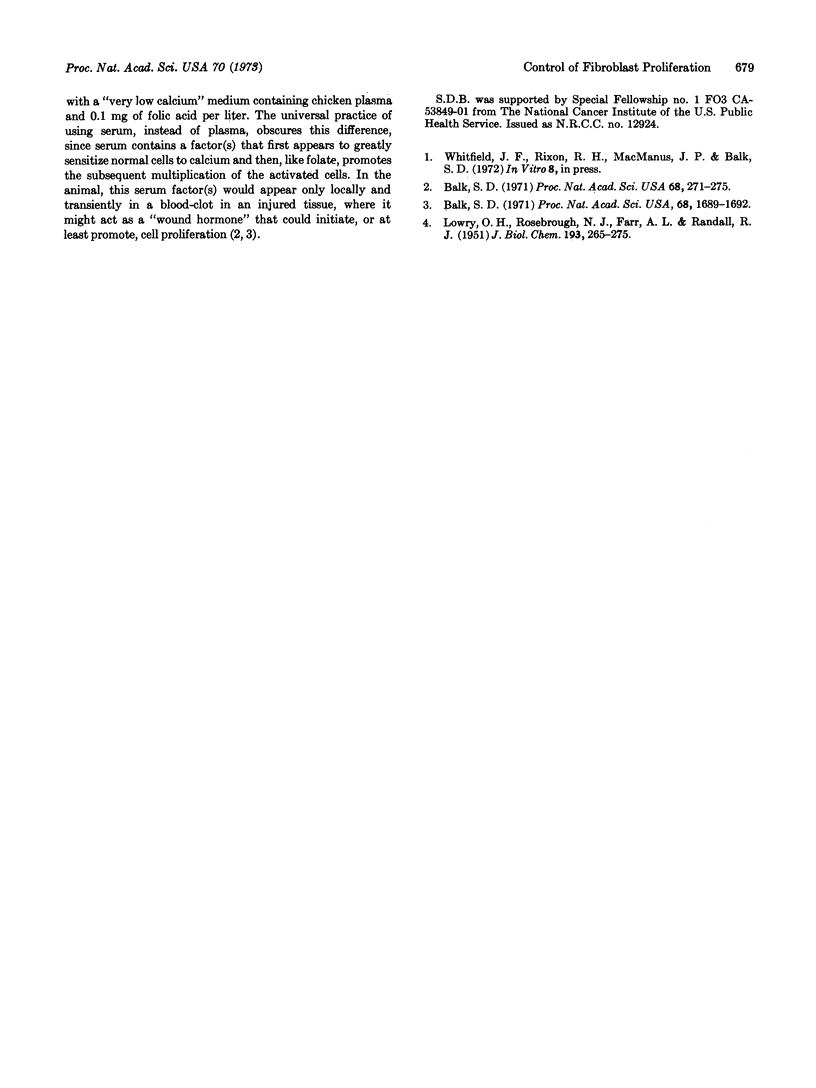
Selected References
These references are in PubMed. This may not be the complete list of references from this article.
- Balk S. D. Calcium as a regulator of the proliferation of normal, but not of transformed, chicken fibroblasts in a plasma-containing medium. Proc Natl Acad Sci U S A. 1971 Feb;68(2):271–275. doi: 10.1073/pnas.68.2.271. [DOI] [PMC free article] [PubMed] [Google Scholar]
- Balk S. D. Stimulation of the proliferation of chicken fibroblasts by folic acid or a serum factor(s) in a plasma-containing medium. Proc Natl Acad Sci U S A. 1971 Aug;68(8):1689–1692. doi: 10.1073/pnas.68.8.1689. [DOI] [PMC free article] [PubMed] [Google Scholar]
- LOWRY O. H., ROSEBROUGH N. J., FARR A. L., RANDALL R. J. Protein measurement with the Folin phenol reagent. J Biol Chem. 1951 Nov;193(1):265–275. [PubMed] [Google Scholar]


